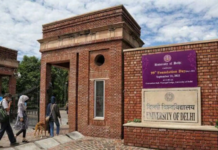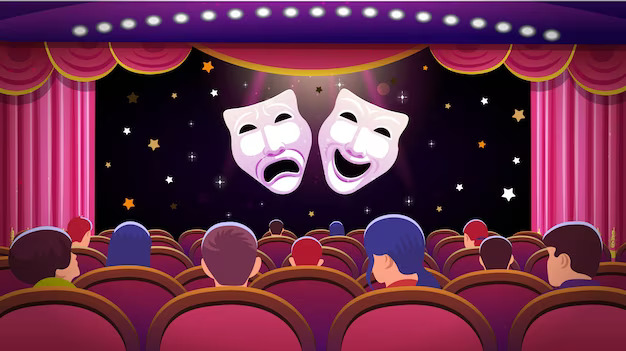The roots of theatre go way back and it is claimed that theatre existed even before other performing arts. Theatre occupies a significant portion of ancient writings that were full of dramas – Kalidas’ works, and Ancient Greek and Latin texts are to name a few.
With cinema emerging as a powerful form of art that took over the entire world, theatre started facing challenges. Today, while cinema has taken over by all means, theatre still exists all over the world.
While theatre continues to struggle, over the last few years the urban and the rural youth have started looking at theatre with a different eye.
Here are five reasons to watch theatre and appreciate it.
1. Aliveness
Unlike cinema, there is no screen. Nothing is made up. The acting is active, not passive. You will experience living people in front of you, breathing, shouting, moving and giving their best on stage. The aliveness of the theatre will keep you alive and will resist boredom.
2. Spontaneity & Unpredictability
Theatre provides for a massive scope of improvisation and spontaneity. Like cinema, actors may forget their lines; they may take wrong movements even after hours of rehearsals, etc. But unlike cinema, there are no-retakes, no cuts, everything happens at that moment, giving rise to spontaneous and unpredictable moments and acts.
3. You get to Imagine
Theatre has limitations when it comes to changing the locations of the set. This limitation gives the audience the space to imagine. A line that says, “how beautiful Paris looks!”, will make us imagine Paris, the Eiffel tower and everything about Paris. The space of imagination kicks our brain and tells us to use it. It demands our attention and concentration.
4. Amalgamation of different forms of Art
Theatre has the potential to combine every form of art. A play can include music and can make us feel as if we are in a concert. It can continue with the story and keep us engaged through narration. It can include dance, and even poetry. In fact, a number of plays are written in poetry. It’s not that cinema cannot achieve this, but theatre combines other arts in their pure form, in their ultimate rawness.
5. Participation and Revolution
Dramas can bend the rule and break down the wall between audience and actors. There are dramas where after a point of time, audience starts participating and acting. So it’s not just the actors’ play, but the audience’s play too. And through this participation, audience and actors unite and together can help solve a small problem if an act is trying to portray one. Bertolt Brecht in Germany brought various social changes using this technique of audience participation. Badal Sircar in India did the same.
So there you have it. Finding theatre plays running nearby shouldn’t be a problem either, do a quick internet search. Usually, there are local communities and groups, and of course, theatres, who have plays scheduled. Institutes teaching performing arts should also be a good place to look for plays.

























